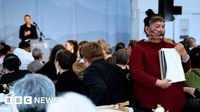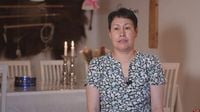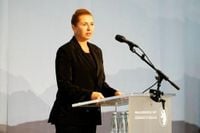The air in Nuuk’s Katuaq cultural center was thick with emotion on September 24, 2025, as Danish Prime Minister Mette Frederiksen and Greenlandic Prime Minister Jens-Frederik Nielsen stood before a packed audience to deliver long-awaited apologies. For decades, the trauma of forced contraception haunted thousands of Indigenous Greenlandic women and girls—some as young as 12—who were fitted with intrauterine devices (IUDs) or given hormonal birth control injections without consent. Now, as the leaders confronted this dark chapter, the women affected and their families listened with a mix of sorrow, anger, and hope.
“Dear women. Dear families. Dear Greenland. Today there is only one right thing to say to you. Sorry,” Frederiksen declared, her voice trembling as reported by BBC. The apology was more than symbolic; it was a public reckoning with a policy that, according to an independent investigation published in early September 2025, had upended the lives of at least 4,500 Indigenous women and girls between the 1960s and mid-1970s. That’s roughly half the fertile female population in Greenland at the time, according to Courthouse News and Danish authorities.
The official inquiry, as detailed by the Associated Press and BBC, found that in more than 300 cases examined, girls as young as 12 were fitted with IUDs without their knowledge or consent. The stated purpose? To limit population growth in Greenland, which was experiencing a rapid increase due to improved living conditions and healthcare. For many, this policy was not just a violation of autonomy but a direct attack on their bodies and futures.
Katrine Petersen, now 52, recalled her own experience at age 13 when Danish doctors in Maniitsoq, Greenland, fitted her with an IUD after a pregnancy termination—without her consent. “Because of my age, I didn’t know what to do,” she said, her words echoing the pain of decades spent in silence. “I kept it inside me and never talked about it.” Petersen described how the trauma led to “anger, depression, and too much to drink,” and later, after marrying, she was unable to have children. “Of course, I’m thinking about all the women who were treated like I was,” she told AP. “I feel with my fellow women from this episode of our life.”
The ceremony in Nuuk was marked not only by official speeches but by protest and raw emotion. One woman stood with her back to the prime minister, a black handprint painted across her mouth—a silent demand for justice and recognition. Naja Lyberth, among the first Inuit Greenlanders to speak out about the scandal, received a standing ovation as she addressed the crowd. “If we are to move forward, the apology is crucial,” she said, according to BBC.
For others, the apology was welcome but not enough. Elisa Christensen, one of the women named in Frederiksen’s speech, described the moment as “very overwhelming” but noted, “There was no mention of compensation at all—we are sad about that. It was almost like empty words.” Her sentiment was echoed by many. While Prime Minister Frederiksen announced plans to establish a “reconciliation fund” for victims and others subjected to systematic discrimination, the details remain vague. A group of 143 women has filed a lawsuit seeking compensation for human rights violations, with the trial set for 2027.
Lawyer Mads Pramming, representing the group, told Courthouse News that the apology was insufficient without a formal acknowledgment of human rights violations and a clear path to compensation. “There is a lack of recognition that it was a violation of human rights and that my clients are therefore entitled to compensation,” he said. Greenlandic MP Aaja Chemnitz criticized the timing of the proposed reconciliation fund, warning that it could delay justice for victims. “This reconciliation fund should not be a preserving jar,” she said, urging the Danish state to move quickly.
The roots of the scandal stretch back to Greenland’s colonial past. The island was under Danish rule until 1953, then became a Danish county, gaining home rule in 1979. However, Copenhagen controlled the healthcare system until 1992, when Greenland assumed responsibility. Even after 1992, at least 15 Greenlandic women were involuntarily fitted with contraceptive devices under local administration, according to Courthouse News. Greenland’s government secured financial compensation for some victims in 2024, but many still await restitution.
The forced contraception policy was part of a broader pattern of abuses. Other controversies—such as the “Little Danes” experiment in the 1950s, which saw Greenlandic children forcibly removed from their families for reeducation in Denmark, and recent cases of family separations following “parenting competence” tests—have further strained Danish-Greenlandic relations. As BBC noted, the apology comes amid increased scrutiny of Denmark’s relationship with Greenland and international pressure, especially following former U.S. President Donald Trump’s repeated expressions of interest in acquiring the Arctic territory.
For many Greenlanders, the apology is a step toward healing but not the end of the journey. Kirstine Berthelsen, now 66, was just 14 when she was fitted with an IUD in Greenland. She remembers being taken to the hospital without explanation and later enduring “endless pain.” Although she gave birth to a son at 34, she believes subsequent failed pregnancies were caused by complications from the device. “Of course, I am angry at the Danish state because of this act,” Berthelsen said. Yet, she also expressed hope that the apology would help her reconcile. “I am ready for a reconciliation, because it will help me. It will personally be a big event for me, and I’m sure it will ease.”
Greenlandic Prime Minister Jens-Frederik Nielsen did not shy away from the gravity of the moment. “You were not asked. You had no opportunity to speak out. You were not heard. You were not seen,” he told the audience, calling it one of the darkest chapters in Greenland’s history. In his own apology, Nielsen acknowledged that the unacceptable practice continued even after Greenland took over its health sector, and he expressed regret on behalf of his government for those affected since 1992.
As the ceremony concluded, the sense of unfinished business lingered. Many women, like Aviaq Petersen—who discovered at 24 that she’d been fitted with an IUD without her knowledge during an abortion a decade earlier—remain skeptical. “I hope to see a formal reconciliation process get under way,” she told BBC. For others, the apology brought a measure of comfort, if not closure. “The little girl inside me, for the first time she felt she got a little hug from society,” Elisa Christensen said. “But for the grown up Elisa, I don’t know [how] I use that apology. Where are the children and grandchildren I should I have?”
With the apology now on record and calls for justice growing louder, the women of Greenland and their advocates continue to push for recognition, compensation, and a future where their voices are truly heard.






